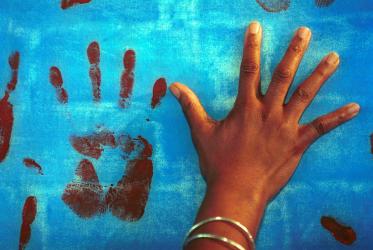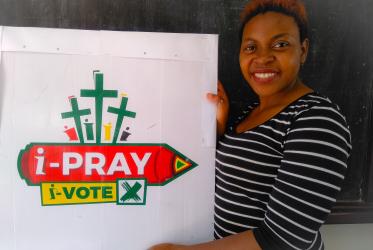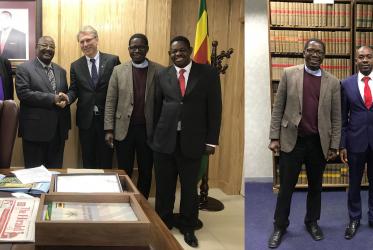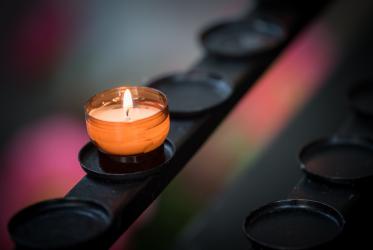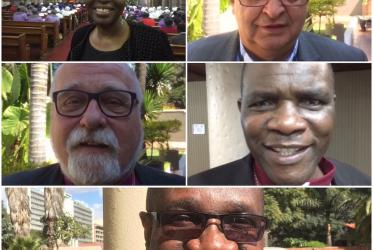Displaying 1 - 20 of 22
Young Africans are eager to grapple with challenges
09 January 2020
Praying and voting goes together
11 July 2018
#WCC70: Churches as “freedom agents”
12 February 2018
#WCC70: Les Églises, des «agents de la liberté»
12 February 2018
WCC Executive Committee comments on situation in Zimbabwe
22 November 2017
Le Comité exécutif du COE s’exprime sur la situation au Zimbabwe
22 November 2017
Voices from a solidarity visit to Zimbabwe
25 May 2017
New Executive Committee members elected in Trondheim
28 June 2016



